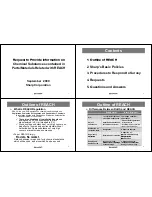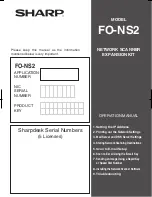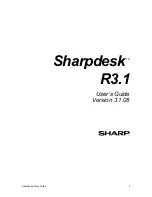
184
Chapter 21. Controlling gdb
set output-radix
base
Set the default base for numeric display. Supported choices for
base
are decimal 8, 10, or 16.
base
must itself be specified either unambiguously or using the current default radix.
show input-radix
Display the current default base for numeric input.
show output-radix
Display the current default base for numeric display.
21.6. Configuring the current ABI
gdb can determine the
ABI
(Application Binary Interface) of your application automatically. However,
sometimes you need to override its conclusions. Use these commands to manage gdb’s view of the
current ABI.
One gdb configuration can debug binaries for multiple operating system targets, either via remote
debugging or native emulation. gdb will autodetect the
OS ABI
(Operating System ABI) in use, but
you can override its conclusion using the
set osabi
command. One example where this is useful is
in debugging of binaries which use an alternate C library (e.g. uClibc for gnu/Linux) which does not
have the same identifying marks that the standard C library for your platform provides.
show osabi
Show the OS ABI currently in use.
set osabi
With no argument, show the list of registered available OS ABI’s.
set osabi
abi
Set the current OS ABI to
abi
.
Generally, the way that an argument of type
float
is passed to a function depends on whether the
function is prototyped. For a prototyped (that is, ANSI/ISO style) function,
float
arguments are
passed unchanged, according to the architecture’s convention for
float
. For unprototyped (that is,
K&R style) functions,
float
arguments are first promoted to type
double
and then passed.
Unfortunately, some forms of debug information do not reliably indicate whether a function
is prototyped. If gdb calls a function that is not marked as prototyped, it consults
set
coerce-float-to-double
.
set coerce-float-to-double
set coerce-float-to-double on
Arguments of type
float
will be promoted to
double
when passed to an unprototyped function.
This is the default setting.
set coerce-float-to-double off
Arguments of type
float
will be passed directly to unprototyped functions.
gdb needs to know the ABI used for your program’s C
++
objects. The correct C
++
ABI depends
on which C
++
compiler was used to build your application. gdb only fully supports programs with a
single C
++
ABI; if your program contains code using multiple C
++
ABI’s or if gdb can not identify
your program’s ABI correctly, you can tell gdb which ABI to use. Currently supported ABI’s include
Содержание ENTERPRISE LINUX 4 - DEVELOPER TOOLS GUIDE
Страница 1: ...Red Hat Enterprise Linux 4 Debugging with gdb ...
Страница 12: ...2 Chapter 1 Debugging with gdb ...
Страница 28: ...18 Chapter 4 Getting In and Out of gdb ...
Страница 34: ...24 Chapter 5 gdb Commands ...
Страница 44: ...34 Chapter 6 Running Programs Under gdb ...
Страница 68: ...58 Chapter 8 Examining the Stack ...
Страница 98: ...88 Chapter 10 Examining Data ...
Страница 112: ...102 Chapter 12 Tracepoints ...
Страница 118: ...108 Chapter 13 Debugging Programs That Use Overlays ...
Страница 138: ...128 Chapter 14 Using gdb with Different Languages ...
Страница 144: ...134 Chapter 15 Examining the Symbol Table ...
Страница 170: ...160 Chapter 19 Debugging remote programs ...
Страница 198: ...188 Chapter 21 Controlling gdb ...
Страница 204: ...194 Chapter 22 Canned Sequences of Commands ...
Страница 206: ...196 Chapter 23 Command Interpreters ...
Страница 216: ...206 Chapter 25 Using gdb under gnu Emacs ...
Страница 296: ...286 Chapter 27 gdb Annotations ...
Страница 300: ...290 Chapter 28 Reporting Bugs in gdb ...
Страница 322: ...312 Chapter 30 Using History Interactively ...
Страница 362: ...352 Appendix D gdb Remote Serial Protocol ...
Страница 380: ...370 Appendix F GNU GENERAL PUBLIC LICENSE ...
Страница 386: ...376 Appendix G GNU Free Documentation License ...
Страница 410: ......
















































